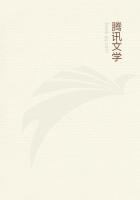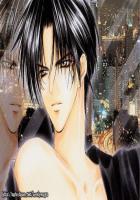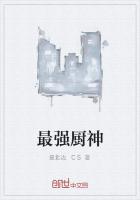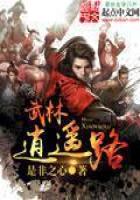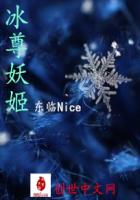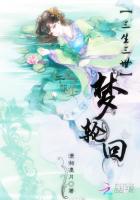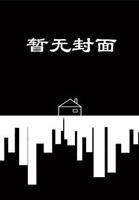Let us see, now, what he says concerning the second kind."The second kind which I have explained," he says, "is that concerning which philosophers have left many books, in which they treat such questions as these: what gods there are, where they are, of what kind and character they are, since what time they have existed, or if they have existed from eternity; whether they are of fire, as Heraclitus believes; or of number, as Pythagoras;or of atoms, as Epicurus says; and other such things, which men's ears can more easily hear inside the walls of a school than outside in the Forum." He finds fault with nothing in this kind of theology which they call physical, and which belongs to philosophers, except that he has related their controversies among themselves, through which there has arisen a multitude of dissentient sects.Nevertheless he has removed this kind from the Forum, that is, from the populace, but he has shut it up in schools.
But that first kind, most false and most base, he has not removed from the citizens.Oh, the religious ears of the people, and among them even those of the Romans, that are not able to bear what the philosophers dispute concerning the gods! But when the poets sing and stage-players act such things as are derogatory to the dignity and the nature of the immortals, such as may befall not a man merely, but the most contemptible man, they not only bear, but willingly listen to.Nor is this all, but they even consider that these things please the gods, and that they are propitiated by them.
But some one may say, Let us distinguish these two kinds of theology, the mythical and the physical,--that is, the fabulous and the natural,--from this civil kind about which we are now speaking.
Anticipating this, he himself has distinguished them.Let us see now how he explains the civil theology itself.I see, indeed, why it should be distinguished as fabulous, even because it is false, because it is base, because it is unworthy.But to wish to distinguish the natural from the civil, what else is that but to confess that the civil itself is false? For if that be natural, what fault has it that it should be excluded? And if this which is called civil be not natural, what merit has it that it should be admitted?
This, in truth, is the cause why he wrote first concerning human things, and afterwards concerning divine things; since in divine things he did not follow nature, but the institution of men.Let us look at this civil theology of his."The third kind," says he, "is that which citizens in cities, and especially the priests, ought to know and to administer.From it is to be known what god each one may suitably worship, what sacred rites and sacrifices each one may suitably perform." Let us still attend to what follows."The first theology," he says, "is especially adapted to the theatre, the second to the world, the third to the city." Who does not see to which he gives the palm? Certainly to the second, which he said above is that of the philosophers.For he testifies that this pertains to the world, than which they think there is nothing better.But those two theologies, the first and the third,--to wit, those of the theatre and of the city,--has he distinguished them or united them? For although we see that the city is in the world, we do not see that it follows that any things belonging to the city pertain to the world.For it is possible that such things may be worshipped and believed in the city, according to false opinions, as have no existence either in the world or out of it.But where is the theatre but in the city? Who instituted the theatre but the state? For what purpose did it constitute it but for scenic plays? And to what class of things do scenic plays belong but to those divine things concerning which these books of Varro's are written with so much ability?
CHAP.6.--CONCERNING THE MYTHIC, THAT IS, THE FABULOUS, THEOLOGY, ANDTHE CIVIL, AGAINST VARRO.
O Marcus Varro! thou art the most acute, and without doubt the most learned, but still a man, not God,--now lifted up by the Spirit of God to see and to announce divine things, thou seest, indeed, that divine things are to be separated from human trifles and lies, but thou fearest to offend those most corrupt opinions of the populace, and their customs in public superstitions, which thou thyself, when thou considerest them on all sides, perceivest, and all your literature loudly pronounces to be abhorrent from the nature of the gods, even of such gods as the frailty of the human mind supposes to exist in the elements of this world.What can the most excellent human talent do here? What can human learning, though manifold, avail thee in this perplexity? Thou desirest to worship the natural gods; thou art compelled to worship the civil.Thou hast found some of the gods to be fabulous, on whom thou vomitest forth very freely what thou thinkest, and, whether thou wiliest or not, thou wettest therewith even the civil gods.Thou sayest, forsooth, that the fabulous are adapted to the theatre, the natural to the world, and the civil to the city;though the world is a divine work, but cities and theatres are the works of men, and though the gods who are laughed at in the theatre are not other than those who are adored in the temples; and ye do not exhibit games in honor of other gods than those to whom ye immolate victims.How much more freely and more subtly wouldst thou have decided these hadst thou said that some gods are natural, others established by men; and concerning those who have been so established, the literature of the poets gives one account, and that of the priests another,--both of which are, nevertheless, so friendly the one to the other, through fellowship in falsehood, that they are both pleasing to the demons, to whom the doctrine of the truth is hostile.

